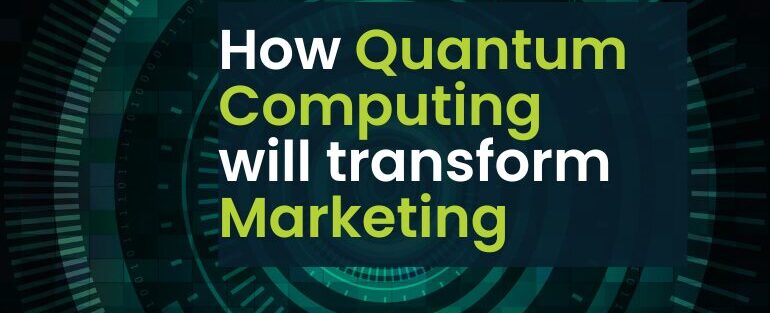Understanding Quantum Computing: A Brief Overview
As digital marketing grows more competitive and data-intensive, the need for advanced technologies is paramount. Enter quantum computing—a revolutionary technology poised to redefine the digital marketing landscape.
With its potential to process complex calculations at unprecedented speeds, quantum computing could unlock new opportunities in data analytics, personalization, and predictive modeling.
This article explores how quantum computing might transform digital marketing, highlighting its implications, benefits, and challenges.
Quantum computing leverages quantum mechanics to perform computations beyond the reach of classical computers.
Unlike traditional binary systems that operate with bits (0s and 1s), quantum computers use quantum bits, or qubits, which can exist in multiple states simultaneously due to a property called superposition.
This ability to process vast amounts of data concurrently can exponentially increase computing power, making it ideal for solving complex problems in digital marketing.
Quantum Computing and Big Data Analytics
One of the most impactful applications of quantum computing in digital marketing is its potential for big data analytics.
Digital marketers often work with massive data sets from various channels to understand customer behavior, preferences, and purchasing trends.
Quantum computing could process these large data sets in a fraction of the time required by traditional computers, delivering insights that are faster and more accurate.
- Real-time Analysis:
Quantum computing could enable real-time data analysis, allowing marketers to adapt campaigns instantly based on current trends and behaviors.
- Enhanced Segmentation:
With quantum speed, marketers could better identify unique audience segments, facilitating hyper-targeted campaigns.
Improving Personalization and Customer Experiences
Personalization is at the core of successful digital marketing strategies.
Quantum computing could enhance personalization by processing complex data sets that reveal deeper insights into customer preferences and behaviors.
This could lead to highly customized marketing messages, product recommendations, and content strategies that resonate on a personal level.
- Predictive Recommendations:
Quantum algorithms could predict what customers are likely to purchase based on past behavior, leading to highly accurate product recommendations.
- Dynamic Content Personalization:
Marketers could serve individualized content in real-time, ensuring that every customer interaction feels unique.
Quantum Cryptography for Enhanced Security
With the rise of data breaches and increasing scrutiny on data privacy, quantum computing also offers a solution in the form of quantum cryptography.
This approach leverages quantum mechanics to secure data, making it highly resistant to hacking.
For digital marketers, this could mean better protection of customer data and compliance with stringent privacy regulations.
- Quantum Encryption:
Quantum algorithms can secure data far beyond the capabilities of classical encryption, ensuring customers’ personal information remains safe.
- Trust and Transparency:
By using quantum cryptography, brands can build trust with their audience, demonstrating a commitment to data privacy and security.
Challenges in Adopting Quantum Computing in Digital Marketing
While the potential benefits of quantum computing are significant, there are also challenges to its adoption in digital marketing.
- High Costs and Technical Complexity:
Quantum computing is currently an expensive technology, requiring specialized hardware and expertise.
- Limited Accessibility:
Quantum computing is still in its nascent stages, and widespread access may be years away.
- Integration with Current Systems:
Integrating quantum computing with existing digital marketing platforms and tools could be challenging and require substantial investment.
The Future of Digital Marketing with Quantum Computing
Despite these challenges, quantum computing represents an exciting future for digital marketing.
As the technology matures and becomes more accessible, we can expect to see a range of applications, from more refined customer insights to enhanced personalization and robust security measures.
Quantum computing holds the potential to radically transform digital marketing by enabling faster data processing, deeper insights, and personalized customer experiences.
Brands that leverage these capabilities could gain a significant competitive edge, setting new standards in data-driven marketing and customer engagement.


